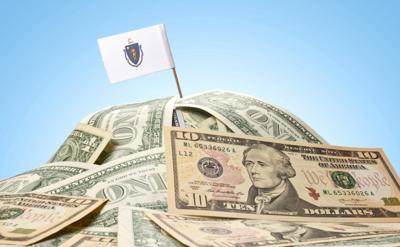

(The Center Square) – Massachusetts residents earning $1 million or more will be faced with a 4% tax beginning Jan. 1.
The tax increase, ratified by voters via Question 1 at the polls in November, is known as the millionaire’s tax and places the new tax on top of the state’s 5% flat-tax rate on income.
Critics have said the new tax might cause many businesses to flee for other more tax-friendly states.
Massachusetts Fiscal Alliance has called out Gov.-elect Maura Healey, who recently created a new climate chief position filled by EPA Principal Deputy General Counsel Melissa Hoffer, for not focusing on tax cuts she promised in her campaign.
MassFiscal Alliance said earlier this month that the new tax poses a significant tax increase for some state residents.
“Question 1’s 80 percent income tax hike will be hitting some small businesses, retirees, home sales and high-income earners and instead of providing any specifics about what broad tax relief Gov.-elect Healey will put forward to help our state deal with the economic fallout from the ballot question, she is prioritizing the first steps of her climate change agenda,” Paul Diego Craney, spokesperson for Massachusetts Fiscal Alliance, said in a release.
“Question 1 does not wait for an inauguration or for a legislative session to start,” he said. “It will start to damage our state’s economy in a few short days. That’s why it’s so important for the new governor to provide specifics for what broad tax cuts she plans to propose to help our state mitigate the damage associated from Question 1.”
As previously reported by The Center Square, the constitutional amendment calls for revenue raised under the tax to be appropriated by the General Assembly for education and transportation, including repairing bridges and roads.
Preceding ratification by voters in November, the state’s Supreme Judicial Court ruled in June that the question could appear on the ballot, following the filing of a lawsuit, Christopher Anderson vs Attorney General. The argument was that the question’s language was ambiguous and that the General Assembly could potentially use revenue generated under the tax for other purposes.
A Pioneer Institute poll conducted in July showed that 73% of business leaders in the state thought the ratification of the tax would cause businesses to leave.
The poll, which was conducted with members of the Retailers Association of Massachusetts and the National Federation of Independent Businesses, and chambers of commerce, said that negative ramifications from the tax were beginning to be seen.
“The survey suggests that business owners and executives are beginning to realize the negative impacts on the economy and tax base of the tax hike amendment,” Pioneer Executive Director Jim Stergios said in July in the release.
The poll reflected the struggles many businesses experienced throughout the COVID-19 pandemic.
“Small business owners are nearing a breaking point following pandemic-related shutdowns and restrictions, labor shortages, supply chain disruptions, and now record high inflation,” Christopher Carlozzi, state director of the National Federation of Independent Business, said in the July release. “Instead of increasing taxes for job creators, Massachusetts must create an atmosphere that encourages economic growth and expansion.”
Brent Addleman
Associate Editor
Brent Addleman is an Associate Editor and a veteran journalist with more than 25 years of experience. He has served as editor of newspapers in Pennsylvania and Texas, and has also worked at newspapers in Delaware, Maryland, New York, and Kentucky.
TELL YOUR FRIENDS ABOUT CITIZENS JOURNAL Help keep us publishing –PLEASE DONATE




